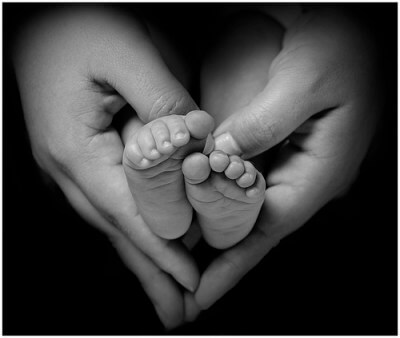
The recent story of Baby Gammy and the surrogacy arrangement two Australian parents had with a Thai Surrogate has certainly generated discussion about surrogacy and the law that surrounds it. Over the last week, I have heard people ask:
“Isn’t surrogacy illegal in Australia?”, ”Don’t the parents have a legal obligation to take the child?”, “Is the child an Australian citizen?”, “How is someone who was convicted of indecent assault able to have a child via a surrogacy arrangement?”
All these questions highlight to us that there is confusion in the general community about surrogacy.
The laws around surrogacy in Australia are complex. Not only does each state in Australia have different legislation (that sometimes conflicts with the law in other states), but we also have to consider how our legislative provisions interact with international law.
In summary:
- Altruistic, or non-commercial, surrogacy is legal in Australia.
- Commercial surrogacy in Australia is illegal throughout Australia, (except in the Northern Territory as they don’t have any surrogacy legislation covering NT residents).
- Overseas surrogacy is expressly banned in Queensland, New South Wales and ACT, but not in Victoria, Tasmania and South Australia. As there is no existing surrogacy legislation covering NT residents, it also means there is no legislation prohibiting overseas commercial surrogacy.
The basic premise of surrogacy is an arrangement whereby a commissioning parent or couple (also referred to as “the intending parent(s)” or “substitute parent(s)”) enter into an arrangement with a woman (the “surrogate mother” or the “birth mother”).
Traditional surrogacy is where the surrogate mother undergoes donor insemination but using her own egg. This is expressly prohibited in some states, for example, the ACT.
Gestational surrogacy is where the egg is harvested from a third person (usually and where possible, from one of the intending parents) and fertilized using sperm donation from one of the intending parents or a third party donor. The embryo is then implanted in the surrogate mother. The resulting child will not have her DNA. In the ACT at least one of the intending parents must be a genetic parent of the child.
When the child is born, according to parentage laws, the legal parents are the surrogate and her partner (if she has one). After the child is born, the intending parents can then apply to the court to transfer the parentage of the child to them. The surrogate parents must agree to this.
In the ACT the law requires that before making a parentage order (in favour of the intending parents) the Court must take into consideration whether both birth parents and both substitute parents have received appropriate counselling and assessment from an independent counselling service. In NSW, it is mandatory that both birth parents and the substitute parents receive counselling, legal advice and medical advice. From our experience, we know that the clinics require all parties involved to undergo fairly extensive counselling. The reason for this is so the clinics, who facilitate the surrogacy, are satisfied that the parents understand the agreement they are entering into and to consider the risks. The counselling covers subjects and facilitates discussions about what will happen if the child has health issues or disabilities, if the birth mother changes her mind, and other unforeseen and emotionally challenging issues. The parties should also understand that at present, surrogacy arrangements and agreements entered into pre-pregnancy are not legally binding. If the surrogate mother decides during or after the pregnancy that she wants to keep the child, then as a starting point she is legally the mother of the child. This is the case even if the child has none of her DNA/genetic material.
In the ACT, this extensive counselling happens before the application for surrogacy is approved by the ethics committee for each fertility clinic. In my view, if it was known that one of the parents had a criminal history, this would be taken into consideration by the ethics committee of the fertility clinic. This is not required by the legislation in most states (only Victoria requires a criminal check before entering into such an arrangement) and may be something that needs further attention as surrogacy laws evolve in coming years.
Notwithstanding that it is illegal in some states, some parents still go ahead and enter into overseas commercial surrogacy arrangements and deal with the consequences later. This can result in all sorts of issues, including:
- The child’s citizenship;
- The child’s entitlement to reside in Australia;
- The child’s entitlement to a Passport;
- Who has parental responsibility and can make decisions for the child.
It is significant that parents are willing to go to extreme (and unlawful) lengths to have children. The fact that competent parents who cannot conceive naturally, and do not have access to an altruistic surrogate, are willing to go to these lengths highlights how desperate some Australian couples are to be parents.
Australian couples are the highest users of overseas commercial surrogacy; primarily in Thailand, India, and the USA. The government has estimated that in the year ending June 2012, approximately 400 children were born to Australian intended parents via commercial surrogacy arrangements in Thailand alone.
Currently there is no legislation in Thailand regulating the use of surrogates; however, the Thai government is considering introducing legislation that may prohibit surrogacy altogether and considering charging intending parents and surrogates with child trafficking charges in children born from these arrangements leave Thailand without government approval.

At this stage the government is saying that they will not rush to make changes to surrogacy laws.
Kirsty McLeod is a surrogacy law expert at Farrar Gesini Dunn in Canberra. For more information about surrogacy please contact 02 6257 6477.